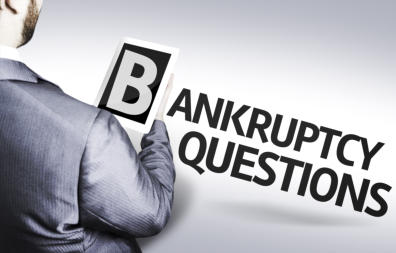SCHREIBER LAW OFFICE, LLC
FREQUENTLY ASKED QUESTIONS REGARDING BANKRUPTCY
Do I make too much money to file for Chapter 7 bankruptcy?
The primary factor to determine chapter 7 eligibility is your income compared to the state's median income (the "means test."). If
you make below the median income listed below, you "pass" the means test, and are much more likely to be eligible for a chapter
7 bankruptcy. If you make above the median income, you still may be able to qualify for chapter 7, depending on what your
expenses are. The current income numbers for Minnesota residents are:
(Updated November 1, 2025)
HOUSEHOLD SIZE HOUSEHOLD ANNUAL INCOME
1. $75,704
2. $95,807
3. $123,244
4* $146,039
*For each additional household member, add $11,100
Click HERE for all states
Do I make too much money to file for Chapter 13 bankruptcy?
No. There are no income guidelines for chapter 13 eligibility.
Will I lose any of my assets if I file for bankruptcy?
The Bankruptcy Code allows individuals to keep enough of their property to
be able to obtain a fresh start after their case is filed. In most cases, this
means individuals are able to keep all their property. For example, if you
own a house, Minnesota law allows you to keep up to $510,000 in equity for
a homestead.
Will I have to pay tax on the debts that were discharged in bankruptcy?
That is a great question, and the answer is NO! Unlike other types of debt forgiveness, debts discharged in bankruptcy are
excluded from gross income for tax purposes. This is federal law, no matter what state you live in. See 11 U.S.C. 108(a)(1)(A)
(discahrge of debts in a title 11 case). Also, the current version of Form 1099-C states on the reverse side that debts cancelled in
bankruptcy are not included in your income.
What if I filed for bankruptcy before, can I file now and discharge my debts?
You can file another bankruptcy, but to get a discharge you need to make sure enough time has passed since the previous one.
These rules apply only if you received a discharge of debts in the previous bankruptcy. If your previous bankruptcy did not end in
a discharge, you probably don’t need to wait:
-If you are considering filing a chapter 7 now and have a prior chapter 7, you have to wait 8 years from when the previous
chapter 7 was filed.
-If you are considering filing a chapter 7 now and have a prior chapter 13, you generally have to wait 6 years from when the
previous chapter 13 was filed, but there are a few exceptions where you can file sooner.
-If you are considering filing a chapter 13 now and have a prior chapter 7, you have to wait 4 years from when the previous
chapter 7 was filed.
-If you are considering filing a chapter 13 now and have a prior chapter 13, you have to wait 2 years from when the previous
chapter 13 was filed.
If a creditor has a judgment, can I still discharge that debt in bankruptcy?
Yes (unless the judgment is for child support, spousal maintenance, taxes or a student loan). A judgment creditor’s debt is
discharged along with your other debt. This office also handles the removal of the judgment from your record.
Is there a credit counseling requirement in order to file for Bankruptcy?
Yes, If you decide to file bankruptcy, the law requires that a credit counseling briefing must be done either in person, online or
over the phone. There are some exceptions to this requirement, but the exception is limited to narrow circumstances. The credit
counseling briefing must be administered by an agency approved by the Bankruptcy Court. It generally takes about an hour and
costs about $20-25 depending on the credit counseling agency selected. If you are considering bankruptcy, it is best to meet with
an attorney before doing the credit counseling to make sure bankruptcy is your best option before spending the time and money
on the credit counseling.


MINNESOTA BANKRUPTCY LAW FIRM
(651) 554-0121
Schreiber Law Office, LLC
5878 Blackshire Path, Suite 8, Inver Grove Heights, MN 55076
1303 S. Frontage Road, Hastings, MN 55033
(651) 554-0121
We are a debt relief agency and help people file for relief under the Bankruptcy Code.
Privacy Policy


SCHREIBER LAW OFFICE, LLC

Do I make too much money to file for
Chapter 7 bankruptcy?
The primary factor to determine
chapter 7 eligibility is your income
compared to the state's median
income (the "means test."). If you
make below the median income listed
below, you "pass" the means test, and
are much more likely to be eligible
for a chapter 7 bankruptcy. If you
make above the median income, you
still may be able to qualify for
chapter 7, depending on what your
expenses are. The current income
numbers for Minnesota residents are:
(Updated November 1, 2025)
HOUSEHOLD SIZE HOUSEHOLD ANNUAL INCOME
1.
$75,704
2.
$95,807
3.
$123,244
4*
$146,039
*For each additional household
member, add $11,100
Click HERE for all states
Do I make too much money to file for
Chapter 13 bankruptcy?
No. There are no income guidelines
for chapter 13 eligibility.
Will I lose any of my assets if I file for
Bankruptcy?
The Bankruptcy Code allows
individuals to keep enough of their
property to be able to obtain a fresh
start after their case is filed. In most
cases, this means individuals are able
to keep all their property. For
example, if you own a house,
Minnesota law allows you to keep up
to $510,000 in equity for a
homestead.
Will I have to pay tax on the debts
that were discharged in bankruptcy?
That is a great question, and the
answer is NO! Unlike other types of
debt forgiveness, debts discharged in
bankruptcy are excluded from gross
income for tax purposes. This is
federal law, no matter what state you
live in. See 11 U.S.C. 108(a)(1)(A)
(discahrge of debts in a title 11 case).
Also, the current version of Form
1099-C states on the reverse side that
debts cancelled in bankruptcy are not
included in your income.
What if I filed for bankruptcy before,
can I file now and discharge my
debts?
You can file another bankruptcy, but
to get a discharge you need to make
sure enough time has passed since
the previous one. These rules apply
only if you received a discharge of
debts in the previous bankruptcy. If
your previous bankruptcy did not end
in a discharge, you probably don’t
need to wait:
-If you are considering filing a
chapter 7 now and have a prior
chapter 7, you have to wait 8
years from when the previous
chapter 7 was filed.
-If you are considering filing a
chapter 7 now and have a prior
chapter 13, you generally have to
wait 6 years from when the
previous chapter 13 was filed, but
there are a few exceptions where
you can file sooner.
-If you are considering filing a
chapter 13 now and have a prior
chapter 7, you have to wait 4
years from when the previous
chapter 7 was filed.
-If you are considering filing a
chapter 13 now and have a prior
chapter 13, you have to wait 2
years from when the previous
chapter 13 was filed.
If a creditor has a judgment, can I still
discharge that debt in bankruptcy?
Yes (unless the judgment is for child
support, spousal maintenance, taxes
or a student loan). A judgment
creditor’s debt is discharged along
with your other debt. This office also
handles the removal of the judgment
from your record.
Is there a credit counseling
requirement in order to file for
Bankruptcy?
Yes, If you decide to file bankruptcy,
the law requires that a credit
counseling briefing must be done
either in person, online or over the
phone. There are some exceptions to
this requirement, but the exception
is limited to narrow circumstances.
The credit counseling briefing must
be administered by an agency
approved by the Bankruptcy Court. It
generally takes about an hour and
costs about $20-25 depending on the
credit counseling agency selected. If
you are considering bankruptcy, it is
best to meet with an attorney before
doing the credit counseling to make
sure bankruptcy is your best option
before spending the time and money
on the credit counseling.


Schreiber Law Office, LLC
5878 Blackshire Path, Suite 8, Inver Grove Heights, MN
1303 S. Frontage Road, Hastings, MN
(651) 554-0121
We are a debt relief agency and help people file for relief
under the Bankruptcy Code.
Privacy Policy
Bankruptcy Law Firm
(651) 554-0121
SCHREIBER LAW OFFICE, LLC
Bankruptcy Law Firm
(651) 554-0121

Do I make too much money to file for Chapter 7
bankruptcy?
The primary factor to determine chapter 7
eligibility is your income compared to the state's
median income (the "means test."). If you make
below the median income listed below, you "pass"
the means test, and are much more likely to be
eligible for a chapter 7 bankruptcy. If you make
above the median income, you still may be able to
qualify for chapter 7, depending on what your
expenses are. The current income numbers for
Minnesota residents are:
(Updated November 1, 2025)
HOUSEHOLD SIZE
HOUSEHOLD ANNUAL INCOME
1.
$75,704
2.
$95,807
3.
$123,244
4*
$146,039
*For each additional household member, add $11,100
Click HERE for all states
Do I make too much money to file for Chapter 13
bankruptcy?
No. There are no income guidelines for chapter 13
eligibility.
Will I lose any of my assets if I file for bankruptcy?
The Bankruptcy Code allows individuals to keep
enough of their property to be able to obtain a
fresh start after their case is filed. In most cases,
this means individuals are able to keep all their
property. For example, if you own a house,
Minnesota law allows you to keep up to $510,000
in equity for a homestead.

Will I have to pay tax on the debts that were
discharged in bankruptcy?
That is a great question, and the answer is NO!
Unlike other types of debt forgiveness, debts
discharged in bankruptcy are excluded from gross
income for tax purposes. This is federal law, no
matter what state you live in. See 11 U.S.C.
108(a)(1)(A) (discahrge of debts in a title 11 case).
Also, the current version of Form 1099-C states on
the reverse side that debts cancelled in
bankruptcy are not included in your income.
What if I filed for bankruptcy before, can I file now
and discharge my debts?
You can file another bankruptcy, but to get a
discharge you need to make sure enough time has
passed since the previous one. These rules apply
only if you received a discharge of debts in the
previous bankruptcy. If your previous bankruptcy
did not end in a discharge, you probably don’t
need to wait:
-If you are considering filing a chapter 7 now
and have a prior chapter 7, you have to wait 8
years from when the previous chapter 7 was
filed.
-If you are considering filing a chapter 7 now
and have a prior chapter 13, you generally
have to wait 6 years from when the previous
chapter 13 was filed, but there are a few
exceptions where you can file sooner.
-If you are considering filing a chapter 13 now
and have a prior chapter 7, you have to wait 4
years from when the previous chapter 7 was
filed.
-If you are considering filing a chapter 13 now
and have a prior chapter 13, you have to wait 2
years from when the previous chapter 13 was
filed.
If a creditor has a judgment, can I still discharge
that debt in bankruptcy?
Yes (unless the judgment is for child support,
spousal maintenance, taxes or a student loan). A
judgment creditor’s debt is discharged along with
your other debt. This office also handles the
removal of the judgment from your record.
Is there a credit counseling requirement in order
to file for Bankruptcy?
Yes, If you decide to file bankruptcy, the law
requires that a credit counseling briefing must be
done either in person, online or over the phone.
There are some exceptions to this requirement,
but the exception is limited to narrow
circumstances. The credit counseling briefing
must be administered by an agency approved by
the Bankruptcy Court. It generally takes about an
hour and costs about $20-25 depending on the
credit counseling agency selected. If you are
considering bankruptcy, it is best to meet with an
attorney before doing the credit counseling to
make sure bankruptcy is your best option before
spending the time and money on the credit
counseling.
Schreiber Law Office, LLC
5878 Blackshire Path, Suite 8, Inver Grove Heights, MN 55076
1303 S. Frontage Road, Hastings, MN 55033
(651) 554-0121
We are a debt relief agency and help people file for relief under the Bankruptcy Code.
Privacy Policy

























